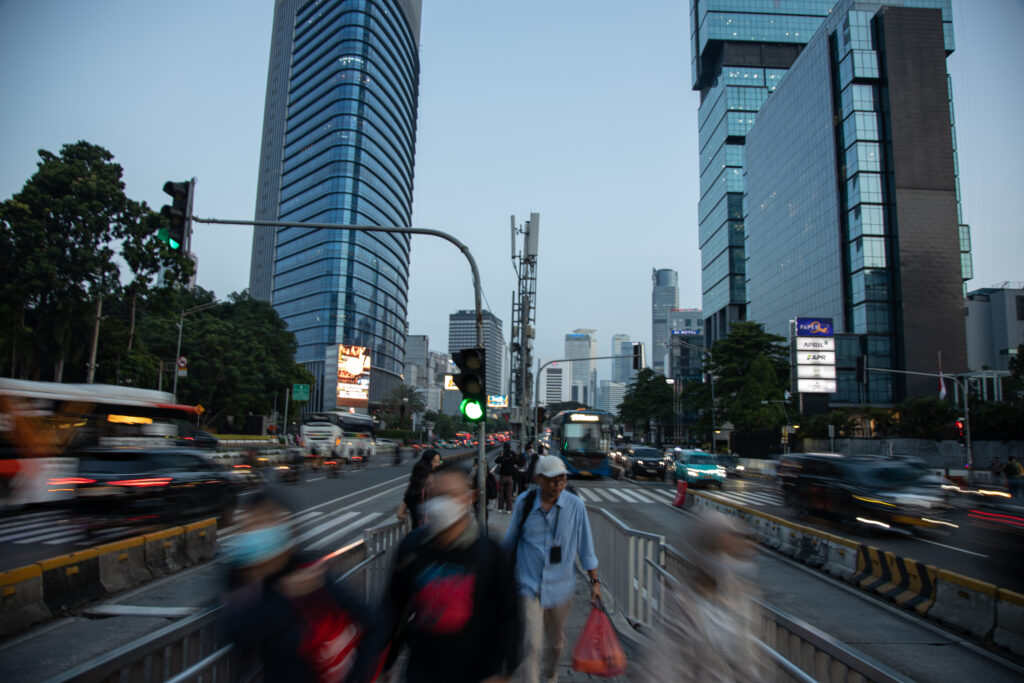Listen to this article
Governments often promote entrepreneurship as an engine of productive growth but fail to recognise its unproductive side. As William J Baumol argued, entrepreneurs can use their ingenuity to either add value, which is productive, or extract rent, which is unproductive. The course of action they opt for depends on the opportunities created by the institutional environment.
A recent string of premanisme (thuggery) incidents in Indonesia illustrate the perils of unproductive entrepreneurship when political influence is more rewarding than productive ingenuity. Mass organisations (ormas)in Subang disrupted construction in VinFast and BYD factories. Indonesian Chamber of Commerce and Industry officials in Cilegon demanded projects without tender. These activities divert resources from productive investments to unproductive but politically connected organisations, heightening worries over Indonesia’s investment attractiveness.
Baumol theorised that institutions shape an economy’s reward system that attracts entrepreneurial talents toward productive or unproductive activities. He argued that because the supply of entrepreneurial talent is fixed, an increase in productive entrepreneurs would mean fewer talents becoming unproductive entrepreneurs, and vice versa.
When the institutional setting rewards innovation and market efficiency, entrepreneurs engage in productive ventures. But when rewards are tied to rent-seeking, coercion or regulatory manipulation, entrepreneurship may turn unproductive, or even destructive.
Unproductive entrepreneurship typically exploits political leverage and legal loopholes to extract rent. A study on the continental United States confirms that states with the weakest institutions have the highest number of lobby groups and lawsuits.
Lobbyists and lawyers are lawful occupations and essential in a functioning democracy. But complex regulatory environments and weak law enforcement direct their efforts towards wealth redistribution rather than building competitiveness.
Business associations, as a form of lobby group, can be either knowledge conduits or rent gatekeepers. A study of the Chilean tomato processing industry highlights that when governments open the economy and deregulate price controls, business associations shift focus from lobbying for quotas, subsidies and tax breaks to upgrading members’ capabilities.
Complicated rules and weak law enforcement also leave plenty of room for creative litigation. Indonesian companies have exploited a law stipulating the use of Indonesian language in agreements. The law stipulates that agreements involving Indonesian individuals or organisations must have an Indonesian version, but specifies no penalty for non-compliance.
This vagueness led to its use in contesting the validity of contracts involving foreign parties. The confusion from this unintended use heightened calls from both foreign and local businesses to reform the law. While the law remains unchanged, the Supreme Court issued Circular Letter 3/2023 to disallow the cancellation of agreements based solely on the absence of an Indonesian version.
Complicated rules coupled with weak enforcement capacity also increase transaction costs that suppress productive ventures. A study on the Indonesian manufacturing sector reveals that entrepreneurs are often deterred by high transaction costs, both legal and illegal. Entrepreneurs must navigate complicated licensing and tax procedures while contending with corruption and protection rackets.
Most Indonesian entrepreneurs remain informal to avoid high registration costs and taxes. But this excludes them from formal financing channels and government support programs. It also leaves them vulnerable to destructive entrepreneurs.
Destructive entrepreneurs often disguise themselves as ormas. According to Law 17/2013, mass organisations are voluntary community organisations convened around shared interests or aspirations — such as religion, ethnicity, geography or political leaning — that contribute to Indonesia’s development. They may even receive grants from the government.
Their exponential growth from less than 140,000 in 2013 to over 550,000 in 2025 has been coupled with a general wariness over the violent behaviour of some. Their rapid growth may be less of an indication of a vibrant civil society than a warning sign of institutional failures.
Some ormas are founded by ex-gangsters who help their political patrons mobilise support during elections. They may even become corporatised as security businesses. Unfortunately, the growth of ormas entering the private security business seems to mirror the growing public distrust of the police over corruption and political interference cases. This exemplifies the irony of nurturing entrepreneurship out of institutional failure.
Indonesia has no shortage of entrepreneurial talent but struggles to channel them into productive activities. If Indonesia is to reorient its entrepreneurial energy towards more productive uses, it must shift from rewarding political connections and legal creativity to technological capability and innovation.
The warnings from President Prabowo Subianto against disorderly ormas may mark a distancing of political institutions from these groups. The naming of business association and mass organisation officials as extortion suspects is a good start towards restoring the rule of law and subsequently repairing public and business confidence.
For these efforts to be effective, law enforcement needs to be cleared of corruption and political interference. The economic root cause of the problem should be addressed. The country needs to open more opportunities for entrepreneurial talents to go into productive ventures rather than political and legal manoeuvring.
Government support programs need to shift from providing handouts to increasing competitiveness. Regulations must be simplified to reduce procedural hurdles and legal loopholes.
The rule of law must be restored and strengthened to resist political interference and improve consistency. Above all, the government must nurture a business environment that rewards innovation over rent-seeking.
Indonesia must ensure that its most resourceful individuals are incentivised to build, not exploit. Only then can the nation harness the full potential of its entrepreneurial spirit.
Andree Surianta is a Senior Research and Policy Specialist at the Center for Indonesian Policy Studies (CIPS).
EAF | Indonesia | Stemming the rise of destructive entrepreneurship in Indonesia

